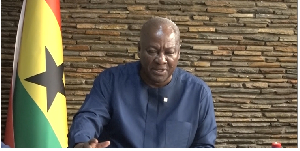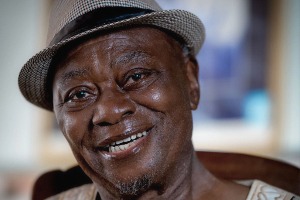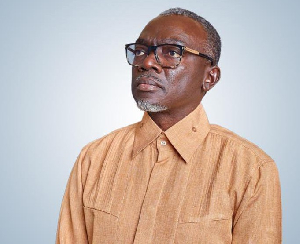Vice President Dr. Mahamudu Bawumia has indicated that government will tighten the bolts on sole sourcing and go strictly by the provisions of the Public Procurement Act.
“We want to ensure strict enforcement of the Public Procurement Act; looking at the bill as it was designed, sole sourcing was not supposed to be as rampant as we are seeing now.
This will help to emphasise the issue of value for money and the provision of quality goods and services,” he said at the maiden Good Corporate Governance Series in Accra.
National Competitive Bidding, which is the first option in the procurement process, will be strictly followed, to ensure transparency in awarding public contracts, he said.
The ongoing brouhaha concerning the official resident for the vice president of the republic “is an example of many government contracts that do not ensure value for money because they are mostly sole-sourced,” he said, reiterating the Akufo-Addo government’s commitment to the establishment of robust and efficient good governance mechanisms.
The procurement act gives elaborate conditions upon which a government entity may engage in single-source procurement.
For example, an entity may resort to sole sourcing, “where goods, works or services are only available from a particular supplier or contractor, or if a particular supplier or contractor has exclusive rights in respect of the goods, works or services, and no reasonable alternative or substitute exists.”
Another condition is: “where there is an urgent need for the goods, works or services and engaging in tender proceedings or any other method of procurement is impractical due to unforeseeable circumstances giving rise to the urgency which is not the result of dilatory conduct on the part of the procurement entity.”
Procurement institute supports strict enforcement
In an interview with the B&FT, President of the Ghana Institute of Procurement and Supply (GIPS), Collins Agyemang, backed the vice president’s call for the law to be rightly applied.
According to him, the Public Procurement Act is being abused with the strong focus on sole sourcing, which is just a small section of the law.
“The Public Procurement Act that guides how procurement should be done prioritises National Competitive Tendering as the first option for procuring goods and services. People are abusing the Act by focusing on the small section on sole-sourcing, because they do not have the right ethical and skills background and are people who want to make money for themselves.
Government must engage procurement personnel with the right skills and ethical background who will adhere to laid down procedures as stated in the Procurement Act.”
Good Corporate Governance Series
The Good Corporate Governance Series is an initiative of the Action Chapel International (ACI), in collaboration with KRIF Ghana Limited and the United States Embassy in Ghana.
Chief of Staff of Action Chapel and Executive Chairman of KRIF Ghana Ltd., Rev. Kennedy Okosun, in his welcome speech, indicated that the initiative seeks to drum home the relevance and core values of good corporate governance.
The initiative, he said, will also promote effective corporate governance as a tool for sustained national socio-economic growth.
Founder and General Overseer of Action Chapel International, Archbishop Nicholas Duncan Williams, in a speech read on his behalf, tasked churches, businesses and civil society to morally and financial support the Good Corporate Governance initiative to help it achieve maximum impact.
He indicated that the negative impact of corruption is felt in all aspects of society and that “doing the right thing is the best way to change the country.”
Archbishop Duncan Williams said: “Lack of good corporate governance and corrupt practices affects all shades of society; therefore, any initiative to promote good governance needs all hands on deck.”
United States Ambassador to Ghana, Robert Jackson, called for a collective effort to promote transparency in the governance process.
“The curse of corruption is borne by everyone; it leaves society vulnerable to social vices as it impedes economic growth. The fight against corruption must rise from the grassroots where people do not have to pay bribe to get a service provided; we must denounce corruption and long for a lasting change,” he said.
Business News of Friday, 3 February 2017
Source: B&FT Online

















